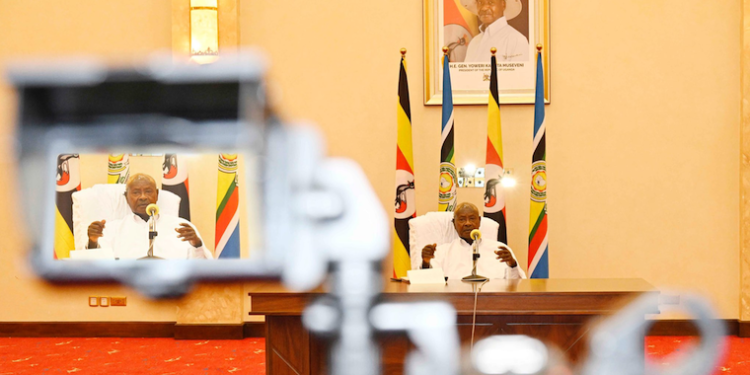By THE OBSERVER UG
President Yoweri Museveni says that he is not bothered by the pressure from Western nations over his decision to sign the Anti-Homosexuality Bill into law, saying that while others may worry, he does not.
Museveni assented to the bill on May 26, 2023, imposing severe penalties, including death and life imprisonment, for individuals engaged in homosexual acts. In response to this decision, various Western powers, such as the United States and the European Union, threatened sanctions, fund withdrawal, and trade pact annulments because the law was discriminatory and contrary to international standards.
The US already declared its intention to remove Uganda from the African Growth and Opportunity Act (AGOA) trade pact in January 2024. This decision stems from the US’ assessment that Uganda’s recent law undermines democratic processes. Additionally, the US also called for a court decision by January 1, 2024, regarding the law, which has faced criticism from other countries for being discriminatory, degrading, and inhumane, contradicting international laws ratified by Uganda.
Similarly, the World Bank (WB) announced its decision to suspend new loans to Uganda due to concerns that the law contradicts the fundamental values upheld by the US-based lender.
Delivering his Christmas message at State House Entebbe, on Friday night, Museveni, emphasized Uganda’s ability to stand independently, highlighting the country’s historical resilience and rich indigenous heritage lasting over 2000 years. He criticized leadership priorities, likening the situation to the war in Ukraine and Russia, where the focus on wheat instead of cassava and millet (richer in starch) was misplaced.
“And you can see. You can look at our economy. It is growing. Look at the inflation, it is one of the lowest in the whole world at 2.3 per cent. You ask about the inflation in America. You ask them. You ask other countries? Why is inflation low? Because we told our people to start producing food,” said Museveni.
Records indicate that inflation in the USA as of November 2023 was at 3.1 per cent as opposed to Uganda’s 2.3 per cent. He credited this success to initiatives like the National Agricultural Advisory Services (NAADS), promoting food production and fostering self-reliance through ample raw materials.
The president advised against external pressures, warning that such actions could damage the reputation of those applying pressure. He pledged to prove that African countries, including Uganda, can thrive independently. Additionally, Museveni addressed issues of terrorism, urging vigilance and announcing strengthened security measures following attacks by suspected Allied Democratic Forces (ADF) rebels in Kyegewa, resulting in casualties.
He also urged citizens to engage in lucrative income-generating activities and report corrupt officials. Meanwhile, the Constitutional court is anticipated to rule on four petitions challenging the Anti-Homosexuality Act. The main four consolidated petitions stem from various groups, including West Budama MP, Fox Odoi, Makerere University’s Prof Sylvia Tamale, Dr Busingye Kabumba and seven others, lawyer Robert Rutaro and three others, and Bishop James Lubega Banda.
The petitioners argue that the law infringes upon personal freedoms, human rights, and dignity. In contrast, the Attorney General, representing the government, seeks the dismissal of these petitions, labeling them as seeking to protect an unconstitutional act of homosexuality.
President Museveni’s statements reflect a determination to assert Uganda’s sovereignty despite external pressures, while the legal battle over the controversial Anti-Homosexuality Act continues within the country’s judicial system.







Discussion about this post